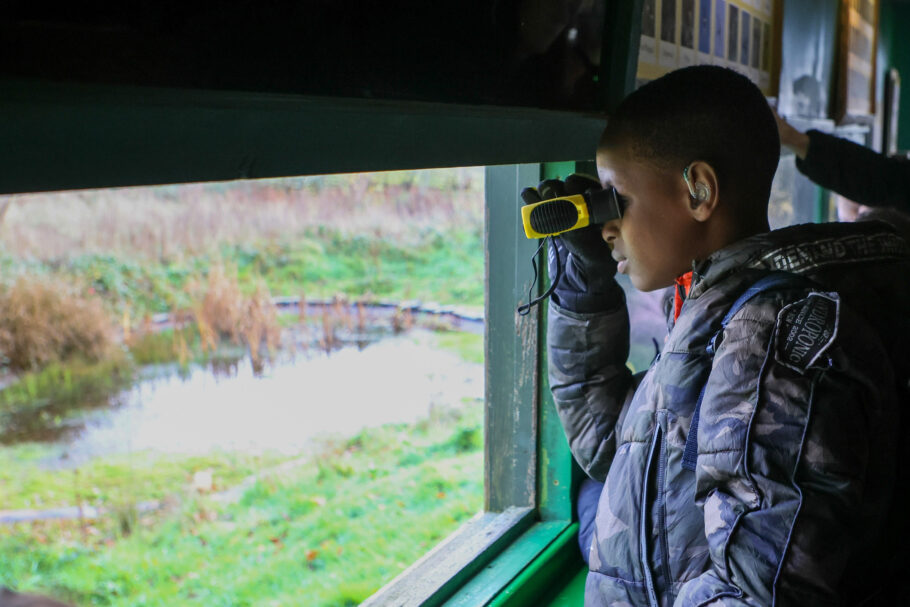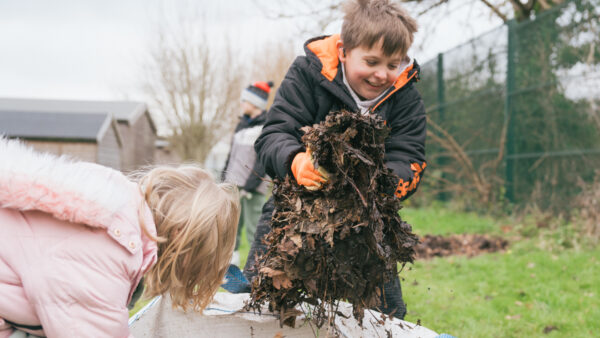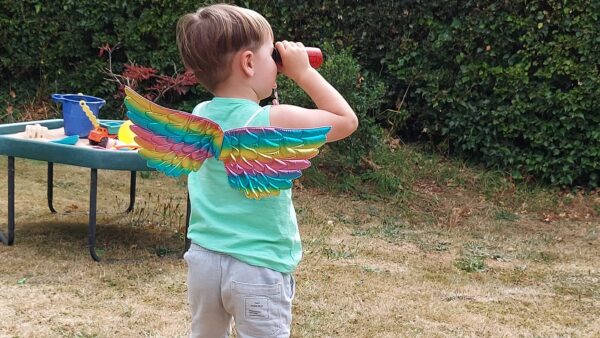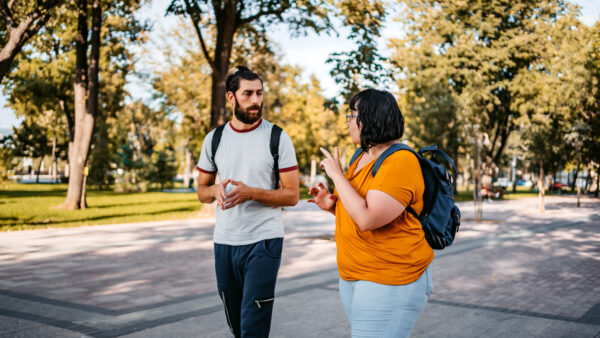Using language to engage more people with nature
Language is key to making sense of our world. It is through language that we learn, explore and connect with the people and environment around us. Lack of representation of some primary languages and communication methods presents significant barriers to people engaging, connecting and learning about the world around them on their own terms.
Our work focuses on language as a gateway to building meaningful and lasting relationships with the natural world and what it means when your primary means of communication isn’t given the attention it deserves. We work with British Sign Language (BSL), braille, Widgit and Alternative and Augmentative Communication (AAC) and the communities who use them, particularly people who are Deaf and hard of hearing, blind and partially sighted people and people with learning disabilities.
We are addressing this in two ways:
Firstly we are making much-needed, sensory-rich resources in these languages and communication methods to support learning and exploration of the natural world. The resources are made in collaboration with the end users, for example with the help of speakers and teachers of BSL.
Secondly, we are working with end users to enrich the vocabularies of BSL and Widgit. This involves creating new signs in BSL and symbols in Widgit to expand on the current vocabulary for plants and the natural world.
New BSL (British Sign Language) signs created for plants and nature
‘How would you describe your favourite tree without the use of the spoken language?’
The reality is that sign languages in many countries lack official signs for plants and nature-related words. Finger-spelling of scientific names can be long and laborious and can result in many people ultimately being left out of important discussions and learning.
There is a need for new BSL signs to support interest and learning about the natural world and we are fortunate to be working with Dr Audrey Cameron and Gary Quinn, from Edinburgh University and the Scottish Sensory Centre's BSL Glossary Team, who are leaders in this.
The European PANCAKE project, led by Friends of the Earth Malta, brought us together with Deaf organisations in Italy, Spain and Malta, to develop new BSL signs for plants and nature that we share in our different countries. A truly collaborative project, teams of scientists, people from the Deaf community and accessibility experts from across Europe came together to:
- Enhance the national sign languages of each participating country with 25 signs for plants found within the countries;
- Create videos to teach the 100 new signs;
- Create a manual of best architectural practices for inclusion and accessibility in public spaces.
Short videos demonstrate each new BSL sign and these are available as UK BSL plant sign videos on Youtube.
Longer videos describe each plant in more detail, capturing the characteristics that contribute to the nature of the BSL sign. These are available as UK BSL educational plant videos on Youtube.
Immersion in nature eases stress and anxiety
Spending time outside isn’t just something we should do in our spare time, it connects us with the natural world and provides essential benefits to our physical and emotional health. This is backed up by established evidence. Our work harnesses the benefits that time spent in outdoor spaces can bring in terms of mental health.
We are using locations such as woods and forests not just as venues for our workshops but as the source of materials and content. The trees, plants and insects become our guide, the logs provide our meeting space and the birds our soundtrack. We encourage practical tasks, putting people at ease first and then the conversation naturally begins to flow and over the weeks a supportive environment flourishes in this safe, natural environment.
Dig Deeper is our positive mental health project in Cornwall for working-age people living with mild to moderate levels of anxiety or stress. We are proving that regular, quality time immersed in nature can ease some stress and anxiety symptoms. We examine and explore nature from a micro level right up to the bigger picture, bringing about a shared sense of awe in nature.
"Awe is a positive emotion triggered by awareness of something vastly larger than the self and not immediately understandable – such as nature"
Chrissy Sexton, Earth.com




